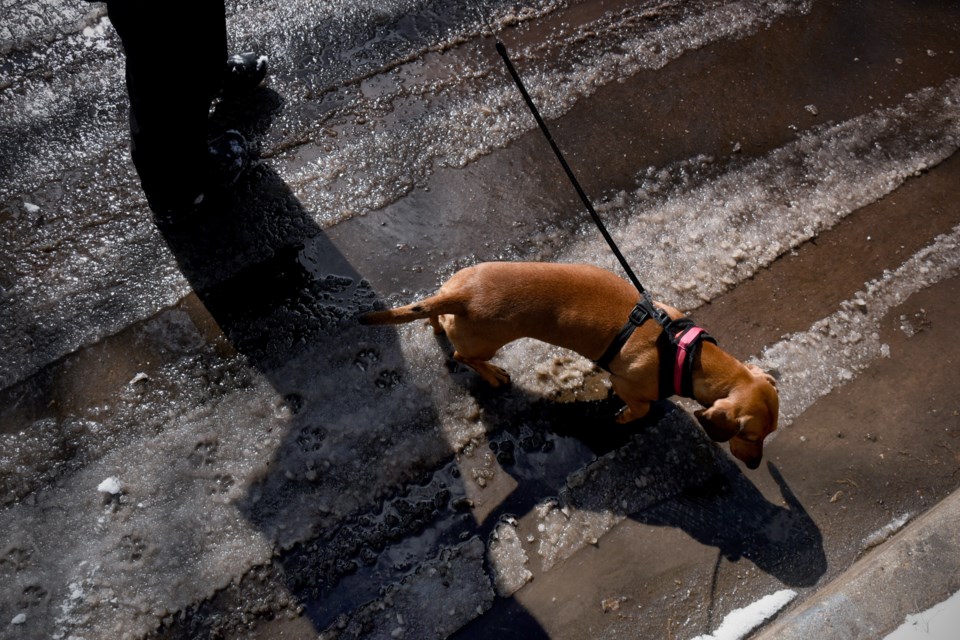When cold, wintry weather lands in Vancouver, a dusting of road salt often covers every paved surface.
The salt is certainly a nuisance when it stains our new suede boots or gets tracked into the house but is it also dangerous to our four-legged friends?
Dogs spend time stepping on the salt crystals when out for their daily walks and most don't have the benefit of shoes.
When dogs or cats come home with road salt on their paws and set about licking themselves, can that salt - also known as ice melt - cause them harm?
According to Dr. Ko Arman, a veterinarian and board director at the Society of BC Veterinarians: Yes, road salt is toxic to cats and dogs.
"This is definitely a valid concern," Arman tells V.I.A in an email. "The good news is that it's rare for pets to ingest sufficient quantities of salt to cause systemic symptoms, but it is still important to maintain awareness about the issue."
What symptoms should pet owners look for if their pet has ingested road salt?
Arman says that signs of road salt ingestion will be mild and are localized to the paws and mouth. Paw pad irritation and some excess salivation (from licking paws) can be observed with mild exposures, or if there has been prolonged contact then painful ulcerations of the pads and mouth can occur.
"If a pet has ingested a sufficient amount of an ice-melt product like road salt, the best course of action is to seek immediate veterinary care," says Arman. "Systemic symptoms may include vomiting, diarrhea, decreased appetite, excess thirst, lethargy, incoordination, tremors, seizures, and eventually coma and even death can take place."
How to prevent your pet from ingesting road salt
Cleansing and drying your pets' paws and belly fur after coming in from the outdoors is a good preventative measure to avoid paw and mouth irritation from salt and other chemicals they may have come into contact with on the roads as well as prevent any ingestion that may occur from self-grooming, according to Arman.
Additionally, little booties provide great paw protection if your dog will tolerate them.
If not, Arman suggests that pet balms can also be used as protective coating for paw pads, "but owners need to be careful not to let their pets lick and ingest the products: be sure to clean them off once home from a walk outside," she says.
She adds that pet owners should also make sure they use pet safe ice melts on their own walkways. And as a bonus tip warns that anti-freeze is also a winter pet hazard. "Pet owners should always buy pet safe anti-freeze for their vehicles - never use anti-freeze that contains ethylene glycol, a compound that is highly toxic to pets," she says.




